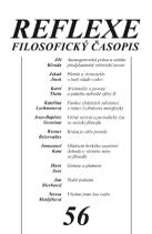Poznámka 52
G. Nicole, Psyche, str. 745; F. Cumont, Recherches, str. 112; W. K. Ch. Guthrie, The Greeks and Their Gods, str. 317–318; týž, The Pre-Socratic World-Picture, str. 92; W. Jaeger, The Greek Ideas of Immortality, in: Harvard Theological Review, 52, 1959, str. 140; R. Lattimore, Themes, str. 46; M. P. Nilsson, Geschichte, I, str. 692; N. J. Richardson, Early Greek Views about Life after Death, in: P. E. Easterling – J. V. Muir (vyd.), Greek Religion and Society, Cambridge 1985, str. 61–62. Všechny doklady z klasické doby jsou nicméně jen nepřímé (srv. Hérodotos II,123; Platón, Meno, 81b–c; Phaedr. 248c–d = A. Bernabé, Poetae Epici Graeci, II,2: Orphicorum et Orphicis similium testimonia et fragmenta, Monachi – Lipsiae 2005 [= OFB],459; Pseudo-Platón, Epist. VI,335a = OFB 433), a proto jsou někteří badatelé přesvědčeni, že metempsychóza v dochovaných orfických pramenech z nejstarší doby doložena není (W. Burkert, Lore and Science, str. 125–126; U. von Wilamowitz-Moellendorff, Glaube der Hellenen, II, Berlin 1931, str. 194; K. Kerényi, Pythagoras und Orpheus, Amsterdam 1940, str. 26–27) nebo že netvořila koherentní nauku (L. Albinus, The House of Hades: Studies in Ancient Greek Eschatology, Aarhus 2000, str. 117–118).
Zpětné odkazy: Reflexe 46:Duše jako vzduch. Její původ a význam
